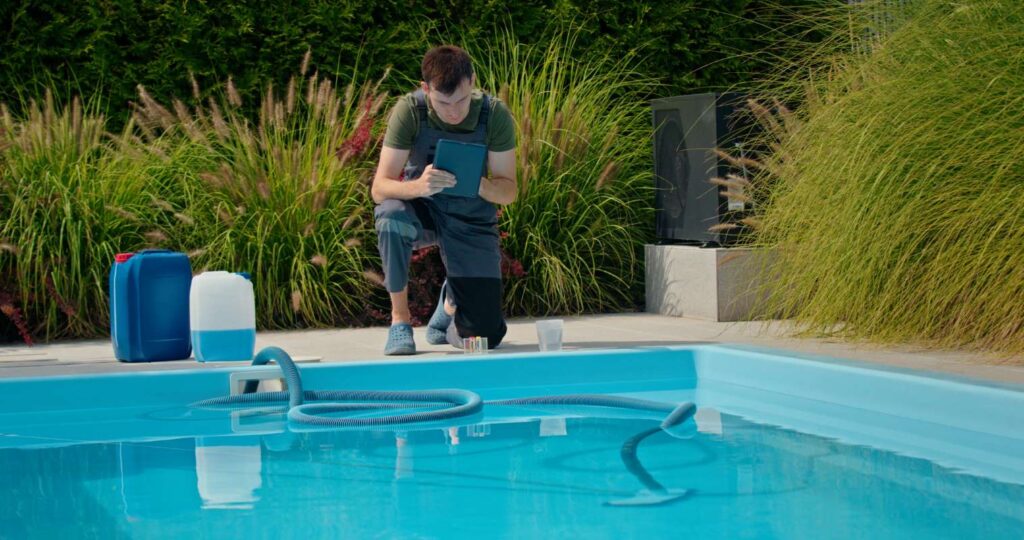Using Technician GPS Data to Optimize in Flagstaff, Arizona
In the bustling city of Flagstaff, Arizona, pool service businesses are increasingly leveraging technician GPS data to gain a competitive edge. This technology enhances route optimization, significantly improving operational efficiency and customer satisfaction. In this blog post, we will explore how GPS data can transform pool service operations, the benefits of its implementation, and practical steps for businesses to adopt this technology.
Flagstaff, a city known for its stunning landscapes and rich history, presents unique challenges for pool service businesses. With varying terrain, weather conditions, and customer distribution, service providers must navigate efficiently to meet client needs while managing costs. Utilizing technician GPS data enables companies to streamline their operations, ensuring timely service while maximizing resource allocation.
Throughout this article, we will delve deep into how GPS data can optimize routes, reduce travel times, and improve overall service delivery. By the end, business owners in Flagstaff will have actionable insights into integrating this technology into their operations, enhancing their service capabilities in a growing market.
The Importance of GPS Data in Pool Service Management
GPS technology has revolutionized the way businesses operate, particularly in the service industry. For pool service companies, the ability to track technician locations in real-time and analyze travel routes is invaluable. By examining data collected through GPS systems, businesses can identify the most efficient routes, reducing fuel costs and travel times significantly.
In Flagstaff, where geographical challenges can affect service delivery, GPS data becomes even more critical. For instance, the city’s diverse neighborhoods require tailored service routes to accommodate varying pool maintenance needs. By utilizing GPS data, pool service managers can develop intelligent routing solutions that minimize delays while enhancing customer satisfaction.
Furthermore, GPS technology not only aids in route optimization but also provides valuable insights into technician performance. By analyzing travel patterns, businesses can assess technician efficiency, ensuring that all team members are meeting service expectations. This improves accountability and allows for targeted training where necessary, ultimately leading to superior service delivery.
Implementing GPS Technology: The First Steps
For pool service businesses in Flagstaff considering GPS technology, the first step is selecting a suitable GPS tracking system. Many options are available, each offering a variety of features tailored to different business needs. A robust GPS system should provide real-time tracking capabilities, route optimization tools, and performance analytics.
After selecting a GPS system, the next step is to train technicians on its use. Effective training ensures that staff can utilize the technology to its full potential, making the most of the tools available. This includes understanding how to interpret the data and adjust their routes accordingly to maximize efficiency.
Additionally, businesses should integrate GPS data into their existing operational software. By doing so, managers can access real-time data analytics, allowing them to make informed decisions quickly. For instance, if a technician is consistently delayed in a particular area, management can evaluate whether route adjustments are necessary or if additional resources are required to meet customer demands.
Enhancing Customer Satisfaction Through Efficient Routing
One of the primary goals of utilizing GPS data in pool service operations is to enhance customer satisfaction. In Flagstaff, where customer expectations are high, delivering timely and reliable service is paramount. With optimized routes, technicians can arrive on-site promptly, significantly reducing wait times for customers.
Moreover, improved communication is another advantage of using GPS technology. Many modern systems allow customers to track their service technician in real-time, providing transparency and peace of mind. This level of communication fosters trust, ensuring customers feel valued and informed throughout the service process.
Incorporating customer feedback into the GPS data analysis can further enhance service delivery. By examining areas with lower customer satisfaction ratings, businesses can adjust routes or improve service quality based on actual customer experiences. This proactive approach not only enhances customer loyalty but also boosts the company’s reputation in the competitive Flagstaff market.
Cost Savings and Increased Profitability
Implementing GPS technology in pool service operations can lead to substantial cost savings. By optimizing technician routes, businesses can reduce fuel expenses and vehicle wear and tear, contributing to overall profitability. Additionally, a more efficient routing system means less time spent on the road and more time spent servicing pools.
By analyzing historical GPS data, businesses can also identify patterns that inform better decision-making. For instance, if certain areas experience higher service demands during specific times, companies can allocate resources accordingly, optimizing staffing levels and reducing overtime costs. This strategic approach enhances operational efficiency, ultimately leading to increased revenue.
Moreover, the reduced operational costs associated with GPS implementation can allow businesses to offer competitive pricing to customers. This affordability can attract new clients while retaining existing ones, creating a win-win situation for both the company and its customers.
Real-World Applications of GPS Data in Pool Services
Numerous pool service businesses have successfully implemented GPS technology to enhance their operations. For example, a pool service provider in Flagstaff adopted GPS data tracking to manage a fleet of technicians more effectively. By analyzing the data, they were able to reduce travel times by 20%, allowing for additional service calls each day.
Another pool service company used GPS data to identify high-demand areas for their services. By strategically marketing to these regions and adjusting their service routes accordingly, they saw a significant increase in customer acquisition and retention. This ability to leverage data for strategic growth is critical in today’s competitive market.
Additionally, integrating GPS systems with customer relationship management (CRM) software allowed these businesses to personalize communications with clients, further enhancing satisfaction and loyalty. The combination of real-time data and customer insights empowers pool service companies to make informed decisions that align with client expectations.
Future Trends in GPS Technology for Pool Services
As technology continues to evolve, the future of GPS utilization in pool service businesses looks promising. Advancements in artificial intelligence and machine learning are likely to enhance GPS capabilities, allowing for even more sophisticated route optimization and predictive analytics.
For instance, future GPS systems may be able to analyze weather patterns and adjust routes based on anticipated conditions, ensuring that technicians are prepared for any scenario. This proactive approach could significantly minimize service disruptions, further enhancing reliability for customers.
Furthermore, the integration of smart devices with GPS technology may enable technicians to receive real-time updates on service requests or customer feedback while on the road. This immediate access to information can empower technicians to respond more effectively to customer needs, ultimately improving service outcomes.
Conclusion
Utilizing technician GPS data in pool service operations in Flagstaff, Arizona, offers numerous benefits, from optimizing routes and enhancing customer satisfaction to reducing operational costs and increasing profitability. By implementing this technology, businesses can position themselves for growth in an increasingly competitive market.
Embracing GPS technology not only streamlines operations but also empowers technicians and management with the tools needed for success. For entrepreneurs looking to expand their pool service business, investing in GPS technology could be a game changer.
As the pool maintenance industry continues to evolve, staying ahead with innovative solutions will be vital. If you’re interested in exploring pool routes for sale or enhancing your pool service operations, visit [Pool Routes for Sale](https://pool-routes-for-sale.com/) today to discover how we can support your journey into pool route ownership.



